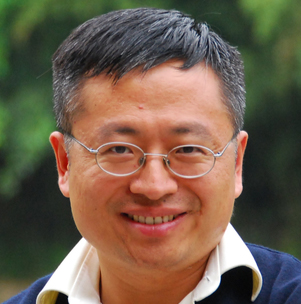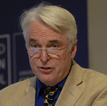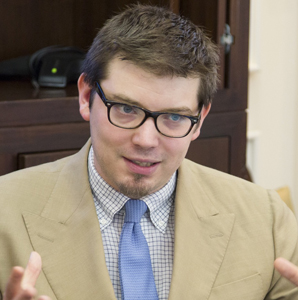风萧萧_Frank
以文会友Rana Mitter, the Professor at Oxford University,a rational Indian British scholar
Frank Jan. 9, 2018 in Canada
April 1 2017, the link http://english.pku.edu.cn/News_Events/News/Focus/2800.htm visited my blog - Notebook of Frank风萧萧的网易博客 and leads to the article 2009 Beijing Forum - Interview with Prof. Rana Mitter, and started at that day, the visitors to this Blog was soaring from less than 150 daily to over 600.
According to Rana Mitter - Wikipedia, Mr. Rana Shantashil Rajyeswar Mitter FBA (born 1969) is a British historian and political scientist of Indian origin who specialises in the history of republican China. He is Professor of the History and Politics of Modern China at the Department of Politics and International Relations at Oxford University, Deutsche Bank Director of the Dickson Poon China Centre, and a Fellow and Vice-Master of St Cross College. His 2013 book China’s War with Japan, 1937-1945: The Struggle for Survival (titled Forgotten Ally: China’s War with Japan, 1937-45for publication in the US), about the Second Sino-Japanese War, was well received by critics.
He is also a regular presenter for Night Waves (now known as "Free Thinking") on BBC Radio 3.
Mitter was educated at King's College, Cambridge, where he received both his MA and PhD; in 1991 he was elected President of the Cambridge Union. He was also a Kennedy Scholar at Harvard University. On 16 July 2015, he was elected a Fellow of the British Academy (FBA).
I appreciate the rational attitude on China of Prof. Rana Mitter as same as that of Prof. Martin Jacques.

Prof. Rana MitterPhoto was from video Rana Mitter: 'my first trip to China'
Rana Mitter
Some of video of Prof. Rana Mitter on youtube.
Prof. Rana Mitter: "Modern China" | Talks at Google
China’s War with Japan, a Conversation with Prof. Rana Mitter
Professor Rana Mitter: "China's Wartime History and Contemporary East Asia"
Professor Rana Mitter on How China's Wartime Past is Changing its Present - and Future
China's War with Japan, 1937-1945 - Rana Mitter
China's Forgotten War: An introduction from Professor Rana Mitter
Professor Rana Mitter: Why Study the Nanjing Atrocities?
The Crisis of Global Modernity: Asian traditions and a sustainable future
The making of modern Chinese nationalism
Europaeum Summer School 2016 - introductory talk by Professor Rana Mitter
Merton Conversation: China and The West - Culture and Society
Rana Mitter - Modern china: A Very Short Introduction
Prof Rana Mitter - Director of Oxford's China Centre
China under Trump: Clashing politics
China’s War with Japan, a Conversation with Prof. Rana Mitter
Professor Rana Mitter on How China's Wartime Past is Changing its Present - and Future
Prof. Rana Mitter: "Modern China" | Talks at Google
Rana Mitter: China in a new international order
Prof. Rana Mitter: "Modern China" | Talks at Google
Rana Mitter: 'my first trip to China' (Mandarin)
Rana Mitter on China's Victory parade CGTN America
Bright Hong Kong in dialogue with Prof. Rana Mitter (7th of Dec. 2017)
'Chongqing in darkness and light', the CUH Lecture 2017
Oxford professor hails China's role in WWII
World War II: China's Forgotten War | PBS America
Rana Mitter: China in a new international order (Mandarin)
The End of the Asian Century? East-West Relations in the Age of Trump
The legacy of the Sino-Japanese war: The unfinished business of 1945
Today, I reproduce 2009 Beijing Forum - Interview with Prof. Rana Mitter to 风萧萧_Frank on http://blog.wenxuecity.com.
2009 Beijing Forum - Interview with Prof. Rana Mitter
http://english.pku.edu.cn/News_Events/News/Focus/2800.htm
Rana Mitter is a Professor of History and Politics of Modern China at Oxford University. Prof. Mitter has published on the political and cultural history of twentieth-century China, and is currently working on the connections between war and nationalism in China from the 1930s to the present. His interests include the Republican period (1912-1949), the Cold War and Sino-Japanese relations.
On the afternoon of Nov 7, Prof. Mitter presented his paper "Learning from Wartime: The Lessons of China's Experience of World War II in the Global Context of the 21st Century." Andrew Yang, reporter of PKU English News Website, was able to interview Prof. Mitter.
A — Andrew
M — Prof. Mitter
A: What do you think is the most important lesson China has learned in the wartime and post-war period of World War II?
M: I think World War II has changed its meaning for China over the last 60 years. But I think one of the most important things that have happened in recent years is that China has become more aware that it was part of a world war.
For a very long time, the story that was told about China during that period was a story we know very well - the story was about Yan'an, about the rise of Mao Zedong, and about the way in which China pursued policies like self-reliance (Zi Li Geng Sheng) because of what it learned from being besieged by both the KMT and also the Japanese during the war.
Of course these are, historically, very important lessons. But the nature of the historical understanding in China has changed in the last 20 years. That is largely because of changes within China itself, and is mostly not to do with foreigners or international trends, but changes in China about how it looks at its own history. And I think, in the last 20 years, because China has been famously taking part in the reform and opening up, being part of a wider world in terms of trade, culture and economics. That's also begun to happen for history. The aspect of China's international experience during the war that has now become much more stressed is that it is part of a world war, so it was an ally of the US, the Soviet Union and of course with Britain. We tend to forget it now because Britain is no longer as major a power as it was. These were the four major allies in World War II, a situation that is now understood again by historians in China, perhaps better than in the West. Because I'm afraid in the West a lot of people have forgotten that China was a major ally during World War II.
At the same time, I think there's also a wider message that comes from this, as commonly found in China today. That is a message not about conflict in war, but about cooperation. In other words, one lesson that I think has been learnt and put forward to the rest of the world is this: 60 years ago, China took part in an anti-Fascist coalition, in cooperation with other countries, Britain, the Soviet Union and US, to fight against Japan and Germany, and operated on the Allies' side in World War II. Today, China also wants to be seen as a power that has a strong role in the international community where it also has a cooperative role. I think that the Chinese government and Chinese people know that it's still quite recently that the rest of the world has got to know China, and a lot of people are worried about the country. I think that it's wrong to be worried about China, but it's a fact that some people are. Using the memory of the wartime period is one of the things that perhaps China is trying to do to remind people that China has, in the past, also cooperated in the international community for a very good purpose. And if people knew more about that history and understood why it was important, maybe they will be less worried about China today. So I think that lesson about international cooperation is one of the ways in which China is trying both to learn about its own past, and use that past to project a more cooperative image of itself in the international community.
A: How can China use its wartime experience to help to deal with the current financial crisis, or even to take the opportunity to become a "responsible great power" economically and politically?
M: The lessons of wartime, in one sense, are very specific to that period, and we have to remember that period was very different from the present day in various ways. In 1930-40s, you could argue that in some important ways China was quite weak, whereas today it's pretty strong - It has great financial power; its borders are safe; and it clearly has a very respected place in the international community. Those things were not true in quite the same way back in the 1930s. So it's important to remember that the two periods are not the same.
Having said that, there are some things I think that are parallels with the period of World War II and now. One of the big opportunities the rest of the world took, including China, after 1945, after victory over the Japanese and Germans, was to remake the world order. And amongst the parts of the world order that were remade in 1945 and afterwards was the financial world order. Many people know the famous Bretton Woods Agreement in which a lot of the financial structures of the whole postwar period were put into operation. And the predecessors of Mao Zedong were involved in those negotiations. One great mistake that was made in that period, which was that very shortly afterward the world soon divided into two during the Cold War, the Western Bloc and the Eastern Bloc. There is an opportunity now to learn from the mistakes of that period. We have gone through big crises, and I'm glad to say that the financial crisis is clear that it's nothing like as bad as during the period of World War II. The situation looks better now even than one year ago. So we are hoping that, maybe thanks to the international cooperation in which China is an important part, we have avoided a really major world crisis.
But something else of the earlier period from 1920s to 1940s tells us that it's very dangerous to have a world that splits up, either ideologically between different types of politics, or financially in terms of protectionism or economies withdrawing into their own borders and refusing to trade with the rest of the world. It seems to me that it is not about to happen right now; I don't think any major economy anywhere in the world is looking to undertake those kinds of solutions. But it's very important, relevant and positive that one of the things China has done is to assure the rest of the world and assure its own people that it will continue to be part of that world political structure - the UN, WTO, IMF and so on, at the same time asking to have greater influence and power in those organizations.
Now I think, partly because people don't know enough history, that maybe policy-makers don't think that much about the parallel period of the World War II. But if they do think about it a bit more, it may give them a useful guide-path as to what might be worth trying now, partly because of some of the developments after the War. It's a good idea to remember the reconstruction of the financial order, the economic reconstruction of much of Asia and Europe, but also to remember the mistakes that we made during that time and to make sure that even if the political situation globally becomes difficult again, we won't fall into the same traps. So I would say it's not just the lessons of the war, but also of the postwar.
A: What do you think has changed in China during World War II became the impetus of China's attempt to boost its status into one of the "Big Four" in the postwar world order?
M: I think China had wanted for a very long time to become a major power in the world, not in terms of wanting to invade or occupy anywhere, but in terms of wanting to have a role in the international system. But for most of the late 19th and early 20th century, the Qing dynasty and the Republican period, this was very difficult because China's position was weak. For example, the students from Peking University during the May 4th Movement talked about the need to oppose warlordism from within the country and imperialism from outside. China had always a sovereignty that was quite heavily compromised, that suffered a great deal because it didn't have equal treaty rights during that period.
World War II in a sense provided an opportunity for the Chinese government of the time as China became very important to the allied powers in the fight against Japan. It was said by everyone from President Roosevelt onwards that it was really important to keep China in the War. This for the first time (in modern history) gave China a high status within an alliance. Never before had China been allied with powers like the US or Britain. And it was not a very easy alliance because the old attitudes, the imperialist attitudes, and racially prejudiced attitudes continued amongst many quite senior people in both countries (US and Britain) even during the wartime period. But at the same time, they were forced to recognize that China had a major role in the wartime period and when war was over, they could no longer go back to the old system where they had special imperialist powers and extraterritorial rights.
In 1943, new treaties were signed, finally giving China equal status with any other power. So 101 years after the Treaty of Nanking in 1842, China finally got its equal status. That was the reason that it was able to rise even higher, and for instance, immediately after the World War II, it became one of the permanent members of the UN Security Council. This was, in some sense, a reward for China's contribution to the wartime effort to fight against Japan, with the fact that 800,000 to 1,000,000 Japanese troops were kept bogged down and pinned down in China by the Chinese forces of both parties during that time.
The previous government was quickly defeated by the CPC in the civil war four years later, so they did not actually have very long to exercise that new sovereignty, but for a short number of years, from 1945 to 1949, the previous government was finally in a position to be sovereign. That was something essentially the wartime period, the war against Japanese, enabled them to do because it (the war) forced the rest of the world into acknowledging China's contribution and also giving China an equal status.
A: Do you think China's particular role in this financial crisis will encourage people from outside China to form a different understanding or a renewed understanding of China's wartime experience? And how will this different understanding be a potential building block to bind China into the international community and change its current role?
M: I hope people who have recognized that China now has a major role in the world's financial system will be encouraged to learn more about China's politics and history. I'm not sure that we will necessarily see a direct connection between the current crisis and the past history. But people have come to realize that you can't fully understand how any major power in the world operates without knowing anything about its history. Therefore I hope that Chinese history and politics, both of which are still not very well understood in the West, get further exposure. For instance, people will perhaps buy more books or see more TV programs. They will try to absorb a bit more of an understanding of what's happening in China.
There are also some good signs. For instance, at Oxford University, where I teach, courses in Chinese history and Chinese politics were only introduced less than ten years ago. But they've become very very popular. Each year, many undergraduates want to study Chinese history and Chinese politics. And I suspect the fact that China is so much more in the news on these questions means that the numbers will just keep growing and growing year by year. So I think as the next generation in the West comes to maturity, they are going to understand a lot more about Chinese history, and how it relates to contemporary politics. I think the wartime period will be part of that.
A: Will a wider project of educating the citizenry about the significance of World War II in China give rise to increasing patriotism as well as protectionism or even xenophobia?
M: I don't think there's any reason why learning more about your own history should necessarily make you xenophobic. I don't think the two have to be linked at all. Of course it's possible, but I hope it wouldn't be the case. Sometimes I look at blogs and websites, and it's clear that there are some Chinese websites that are very hostile, saying pretty nasty things about the Japanese. But I know there are blogs in probably every country that have some unusual or even crazy things and China is not any different there. I think there are also a lot of very thoughtful blogs that think a lot about the history, debating questions, not just general questions about the war, but also quite specific things like "what actually happened in the battle of Tai'erzhuang," or "should Peng Dehuai have acted differently in the 100-Regiment Campaign," or "could the government in Chungking have done something different about the Da hongzha (the air raids)." These are clearly people who read a lot of history and use the Internet to think about these questions. So I think it's making them patriotic, but also quite thoughtful and quite informed about what's happened in their own history.
I think that understanding your own history is a very important part of being patriotic — understanding where you come from, the background. But the most patriotic people are those who also ask questions about history. They don't just hear a story from anyone and say "that's the way it was and I believe it without questioning it at all." Instead, it's always important to try to find out "why did these things happen," "how did they happen," "could we think about them in a different way." When you understand those things, then it gives you a more complex understanding of your own history and a greater understanding of why it's important. So I think that it's quite likely that as China learns more about its past during the wartime period, it will encourage a sense of patriotism, but I hope it will also encourage a critical and questioning approach to the past in general.
Transcript by: Jacques Edited by: Andrew Yang
Oxford China Academics
A closer look at Oxford academics – tutors, lecturers, researchers – who have a personal connection to China and what it’s like to live and work in Oxford University today.
|
Peter Frankopan
Research Fellow at Worcester College, Director of the Oxford Centre for Byzantine Research Rosemary Foot
Emeritus Fellow, St Antony's College Former Professor of International Relations and John Swire Senior Research Fellow |
|
|
|
|
|
Mark Williams
Professor of Psychology and Director of the Oxford Mindfulness Centre |
|
Steve Rayner
James Martin Professor of Science and Civilization and Co-Director of the Oxford Martin Programme for Future Cities |
Rogier Creemers
Post-doctoral research officer at the Programme for |




















